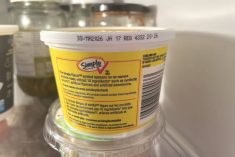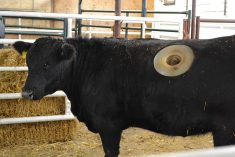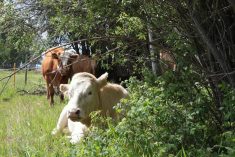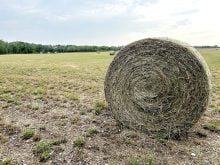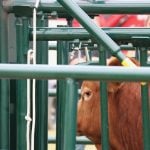Talk about Canadian beef in a positive way, and consumers will buy and eat more beef.
That was a key finding of in-depth research by Canada Beef — and something that surprised marketing officials who figured today’s consumers are fixated on topics such as antibiotics and animal welfare.
“Consumers wanted to hear about producers; they wanted to hear about Canada, its landscapes, and what they already believed to be true about Canada,” James Bradbury, brand officer with Canada Beef said at the recent Alberta Beef Industry Conference.
Read Also

From winter soil to bountiful crops: Alberta’s ultra-early seeding experiment
Southern Alberta farmers are putting research into practice, pushing ahead traditional seeding times by months for spring wheat and durum.
The beef promotion agency measured the effect of speaking “in this positive way rather than the defensive approach” and found that with the good-news approach “we would get 2-1/2 times more consumption out of it,” it said. People just don’t want to hear about negative topics such as animal rights, crowding, cruelty, and industrial farming, he said.
“This is our national brand equity talking,” said Bradbury. “That’s the natural perception that consumers already have. Let’s not fight it. Let’s join it.”
Over the past two years, Canada Beef conducted research in Canada, Mexico, Japan and China, interacting with 500 consumers in each region. Consumers from the four countries, as well as beef industry members, were asked 54 questions about their perceptions of Canadian beef.
The research found beef is considered a “special occasion” food and people have positive associations with the product.
“There’s no better position for a brand to be in than one that is in the enviable position of being the keeper of memories, and the keeper of people’s best occasions. It’s great,” said Bradbury.
The survey also suggested a way to strengthen that connection.
“Everyone agreed that cattle ranching was the perfect fit for the Canadian landscape. That’s a strong indicator of where the brand needs to go. That’s something that people feel passionately about and agree on.”
There were no concerns about the safety of Canadian beef — “this is a given,” said Bradbury.
And while the cattle industry felt it was important to talk about hormones and antibiotics, consumers didn’t necessarily want to hear about them.
However, there is a caveat to that statement. There is a small, but very vocal group (mostly young people who purchase fast food) that challenges the use of hormones and antibiotics.
“It makes sense that fast-food companies have to spend a lot of money and time, and be proactive and talk about these issues with a younger audience,” said Bradbury. “We have to be incredibly careful here. We can talk about hormones and antibiotics, but we have to do it with a select group of people. And be selective about how we get that message to them, because they have a different information gathering system.”
Members of this group are also quick to believe negative news and fake news. Reaching out to this group is “challenging,” but the survey showed that if messaging on this topic is focused on “them specifically and not to a broader audience, we’ll be better off.”
“That’s the big aha moment,” he said.
But most consumers would rather see Canadian beef linked to iconic images of the country, such as mountains, skiing and hockey, friendly people, nature, and a good quality of life.
“Overwhelmingly, consumers felt negative perceptions were not something they wanted to hear within our brand,” said Bradbury.





